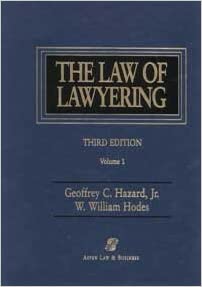This is a brief sketch of a case in federal court–first in the district court in Michigan and then before a panel of the the Sixth Circuit. It involves striking misconduct of a judge that injured the idea of any commitment to uniform justice and left the judge “sullied.” The case is unlikely to undergo further review.
A Michigan judge, Judge McCree (“J”), while conducting hearings, etc., in a felony prosecution resulting from nonpayment of child support, had a passionate affair the woman who was being deprived of child support. The woman was also the wife of the accused.
J said in a disciplinary hearing that sometimes his affair-partner, Geniene La’Shay Mott, would be “‘at the apex of euphoria[,]'”
J terminated the affair with his friend after a lengthy series of time and interactions. Ms. Mott had become extremely angry; she stalked and accosted him several times; eventually she came to the home of J and his wife. At some point she went to local TV station, and hence the cat was out of the bag, so to speak, and thereafter there was a good deal of publicity. Interestingly, and in perhaps the only instance of good sense J showed in this entire fiasco, he told her “not to disclose the affair in order to avoid ‘deep shit.'”
The Michigan Supreme Court removed J from “judicial office and prospectively suspended him without pay for six years if voters should reelect him in November 2014.” The defendant in the criminal case, and the non-payer of the child support, sued J in federal court for violations of section 1983. (Of course, the voters should not (in several senses, anyway) reelect J and will not, even in the Detroit area, elect this insensitive, boor, who lacks not only good sense, but any sense at all.)
So, what happened? What difference did it make that J lent his “partner” a not insubstantial sum, discussed how to proceed against here husband, how to use jail as a lever to get her the child support, and other “anti-judicial” discussions and actions.
The case discussed here, King v. McCree, #13-2033 (6th Cir. July 21, 2014), was dismissed under the doctrine of judicial immunity. A panel of the Sixth Circuit held that J was within his jurisdiction and was not undertaking relevant “nonjudicial actions,” as that term is understood in the law,with one judge concurring and setting forth a noble exposition of judicial ethics. In reasoning as it did, the panel affirmed the District Judge in dismissing the case.
The court’s opinion is an exemplary piece of legal reasoning replete with cites to precedents some coming from the Supreme Court of the United States. There is a far easier way to get the picture. The doctrine of judicial immunity applies whenever a judge is doing anything connected to typical judicial activities, e.g., handling pending cases. Here that would be the processing of King’s prosecution. In this case the judge did something which was negatively connected to that activity. It does not matter whether or not the act at issue was a functionally normal act performed by a judge; it is its connectedness that matters.
It is perfectly clear that J’s acts with the wife of the accused, Mr. King, were claimed by the defendant to have denied him due process, in other words, that J’s conduct negatively impacted him in a judicial proceeding. Under fixed precedent regarding judicial immunity, “‘[a] judge will not be deprived of immunity because the action he took. . .was done maliciously.'” Courts recognize “judicial immunity even when a judge’s actions [are] “‘petty, unethical, and unworthy of his office.'” (The reader must remember that judicial immunity does not apply to the removal of a judge or to his/her disbarment.
The Circuit panel did not need to go further than what was just said. It did state, however, a due process violation requires a direct connection between an act and the alleging victim. But even this was not the case with the affair. If there was a due process violation, it would have to occur in the court proceeding. But when J accepted the defendant’s plea, and “there was a delayed-sentence agreement,” the affair had not begun.
We have four federal judges and those on the Michigan Supreme Court disappointed, outraged, and perhaps even in despair. At the same time, one wonders if they did not have a little humor in them. It might be found in their quote of exquisite language from an earlier Sixth Circuit case, Archie v . Lanier, 95 F.3d 438 (6th Cir. 1996). “Yielding to an unruly libido is not the exercise of judicial power, or somehow like or related to the performance of judicial acts. . . . A judge’s long study of the law does not proceed from sexual appetites, even though we may sometimes say that ‘the law is a jealous mistress.'” Id. at 444.
See In re Judge McCree, 845 N.W.2d 458 (Mich 2014) for the decision of the Supreme Court of Michigan in this case.
Comments
- It was virtually necessary to quote the Archie passage, and the panel showed an immense commitment to the ideals of the American legal tradition by what it did not even mention: namely, age difference, race, the fact that Ms. Mott was impregnated by J., the marital status of the complainant-witness in the underlying status, and previous quasi-sexual conduct of J. for which he had already been reprimanded (or publicly censured), sending topless pictures to at least several women, including a bailiff, LaDawnn Malone, apparently in 2006. See MyFoxDetroit 12/7/12
- I would have acted much more harshly than the Supreme Court of Michigan did. Not all of the story has been told here.
- What about Ms. Mott? She was complicit in the sordid; she knew it was dangerous in various ways. If nothing she was taking money in the form of a loan from a public official in the performance of state related acts, and she was providing him sex. This at least sounds much like a bribe. (She may have also demanded money from J after he terminated–or tried to terminate–their relationship.)
- It seems odd to me that Mr. King could not afford to pay his child support but could afford a lawyer in this case. This case does not strike me as a contingency fee case. I am the sort of person who is at least tempted to believe that there is another story lurking in these bushes. This is not a state of affairs in which Mr. King is merely feeling put upon since he, to himself, and his friends are asserting to each other and to him that he got “f—–d.”







Recent Comments